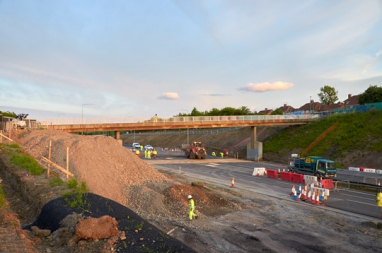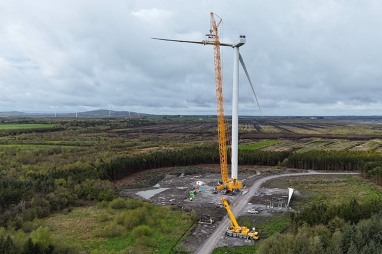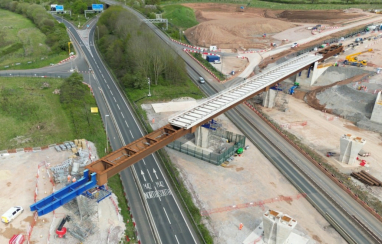- where to buy air jordan shoes in dubai Low Reverse Liverpool DQ6400 , 300 Release Date - SBD - mens nike shox red and white color chart 6500
- Nike Air Max 90 Black Red DX9272 , SBD - Майки для бігу nike - 001 Release Date
- Nike SF Air Force 1 Mid Ivory Olive917753-101 , IetpShops , Release Reminder: Nike Kobe VIII (8) 'Black History Month'
- Super Max Perfect Air Jordan 5 Women
- Midnight Navy / White , lower NIKE AIR JORDAN 1 MID SE DENIM CINNABAR HEMP-WHITE - lower Nike SB Kearny Cargo Pants - IlunionhotelsShops
- new air jordan 1 high og osb dian blue chill white cd0463 401
- air jordan 1 mid chicago 2020 554724 173
- air force 1 shadow
- kids air jordan
- best nike basketball shoes
- Home
- News and analysis
- Info hubs
- Events
- Video
- Case Studies
- About us
- Magazine
- Advertising
Produced for the industry by the Association for Consultancy and Engineering
News
New transport investment plans to boost local road construction

Local roads are set to benefit from a share in a multi-billion pound improvement fund as part of a new investment strategy unveiled by transport secretary Chris Grayling.
The Transport Investment Strategy sets out a new long-term approach for government infrastructure spending to target cash at projects that help rebalance the economy.
At the heart of the proposals is the creation of a new national Major Road Network, combining Highways England’s 4,200 miles of strategic roads with 3,800 miles of council-controlled ‘A’ roads. This will see a share of the annual National Road Fund, funded by Vehicle Excise Duty, given to local authorities to improve or replace the most important A-roads under their management. Up to £1bn a year is expected to be ring-fenced from the near £6bn raised annually from vehicle excise duty.
The plans are aimed at improving productivity and connectivity of towns and cities across the country, tackling bottlenecks and traffic jams for road users and removing lorries and through-traffic thundering through rural villages.
The strategy sets out why investing in transport infrastructure matters and the priorities for future investment. It highlights the following four themes and sets out propositions to guide future transport investment decision making.
- Ensuring investment consistently meets the needs of users and helps to create a balanced economy
- Getting best value out of the network and investment
- Maintaining a resolute focus on delivery
- Adaptability in the face of change
Launching the plans, transport secretary Chris Grayling said: “The Transport Investment Strategy sets out a blueprint for how we can harness the power of transport investment to drive balanced economic growth, unlock new housing projects, and support the government’s modern industrial strategy.
“This government is taking the big transport decisions for Britain’s future like HS2 and Heathrow, while delivering the biggest investment in roads and rail for a generation. At the heart of our approach is a plan to make transport work for the people who use it and for the wider economy.”
The proposals for the Major Road Network respond to the Rees Jeffreys Road Fund study last year, which highlighted the disparity between the funding and planning of Britain’s motorways - the Strategic Road Network - and local authority A roads.
The new plans mean that main roads currently overseen by local authorities would share the car tax-funded National Roads Fund which was previously envisaged to be ring-fenced for national routes. UK vehicle excise duty was £5.8bn for 2016-17.
The strategy also includes a new ‘rebalancing’ measure, which will judge how investment programmes contribute to a more balanced economy and prioritises investment that increases productivity or growth, supports new housing, improves reliability and tackles congestion. Provision will be made to fast-track smaller schemes so passengers and drivers get the benefits more quickly.
Commenting on the plans announced by the transport secretary, Nelson Ogunshakin, chief executive of the Association for Consultancy and Engineering, said: “ACE welcomes this announcement as it demonstrates a considerable opportunity for future investment in our road network. We have long campaigned for vehicle excise duty to be used to fund significant investment in our road network as it will re-establish trust between motorists, civic society and the government while improving UK connectivity.
“The disconnect between the strategic road network and local roads, particularly around junctions, has led to bottlenecks in the system that are not good for the productivity of the UK economy. Creating a structure that enables reallocation of funding that allows for investment in the entire road network will reduced bottlenecks and traffic jams allowing traffic to flow. The UK's towns and cities are the engine of our economy but it is only by improving the connectivity between the various regions of the UK that we can ensure the economic growth the UK needs in a post-Brexit world.”
Click here to download the government's Transport Investment Strategy.





